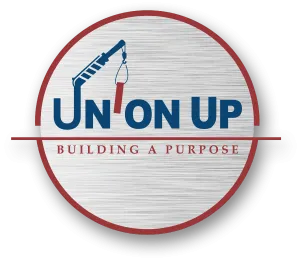
Solidarity Sunday: Should You Advertise?
"How do I know if our advertising is working?"
It's a fair question. No labor leader wants to invite scrutiny over something they're unsure about or merely hope will work. Perfectly understandable.
Fortunately, in the informational age we live in, there are plenty of metrics and research to measure the effectiveness of your advertising. Here are just a few:
Website analytics - your direct website traffic year over year
Organic search results - those looking for your brand specifically
Branded search - number of searches for terms you are using in your advertising
Lead inflow - the number of inquiries to your local union via phone, email, text, etc.
Conversion rate - the ease with which you close new members
Personal feedback - people saying "I heard your ads", or complaining they hear you all the time, or maybe even offended by something said in the ad
Bottom line numbers - Are you growing your market share? Are you growing your receipts and your membership?
The real question is,
"Should you advertise at all?"
If you don't believe your organization can change the world
and that telling your story at scale is worth investing in
—then don't spend a dime on advertising.
No number of reports or facts or data will change a mind that doesn't believe—just look at today's divided politics, where evidence rarely moves conviction.
Advertising isn't about changing minds so much as it's about finding and connecting with as many people as possible who already share your beliefs but haven't joined you yet. Advertising is telling your story at scale.
You either believe in telling your story to as many people as possible or you don't. If you don't, then don't advertise.
If you do believe in telling your story and want to develop effective advertising strategy, here are The Seven Laws of the Advertising Universe by Roy H. Williams you need to know:
There's no such thing as a low-risk, high reward strategy. Opportunity and Security are inversely proportionate. As one increases, the other must decrease.
Groups of People are predictable. Individuals are not. The exception doesn't disprove the rule. This is a cornerstone of advertising strategy. If you're telling your story at scale, then build your strategy on group behavior, not on exceptions. Be careful of being a "focus group of one".
Win their hearts and their minds will follow. Intellect and Emotion are partners who don't speak the same language. Our minds finds logic to justify what our hearts have decided. You will be more effective appealing to their emotions than their intellect.
Win their time and their money will follow. Time and Money are two sides of a single coin. No person gives you his money until he has first given you his time. Deploy your message where they naturally spend lots of time before they need you.
Win their ears and their eyes will follow. Sight and Sound function differently in the mind, with sound being the surer investment.
People only go where their minds have already been. Spark their imagination first. Invite them to see themselves in the story. Imagine the impact they could make, the role they could play, and the future they could help shape. When they can picture themselves as part of your mission, they will follow your path.
The Energy of Words has existed since the day God said, "Let there be light." Words are the most powerful force that's ever existed. Learn how to use this energy. You are created in His image.

